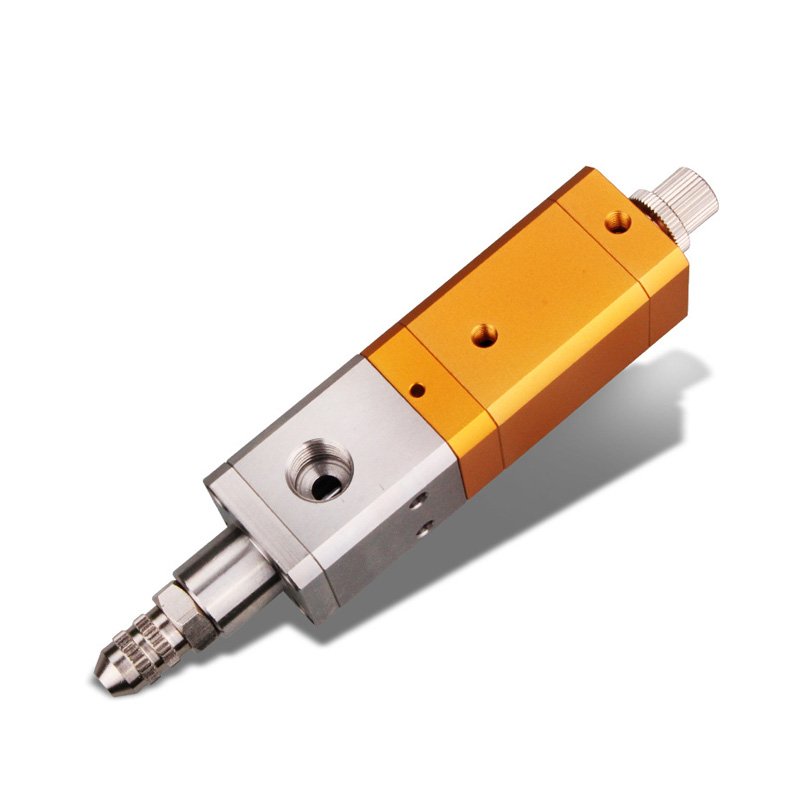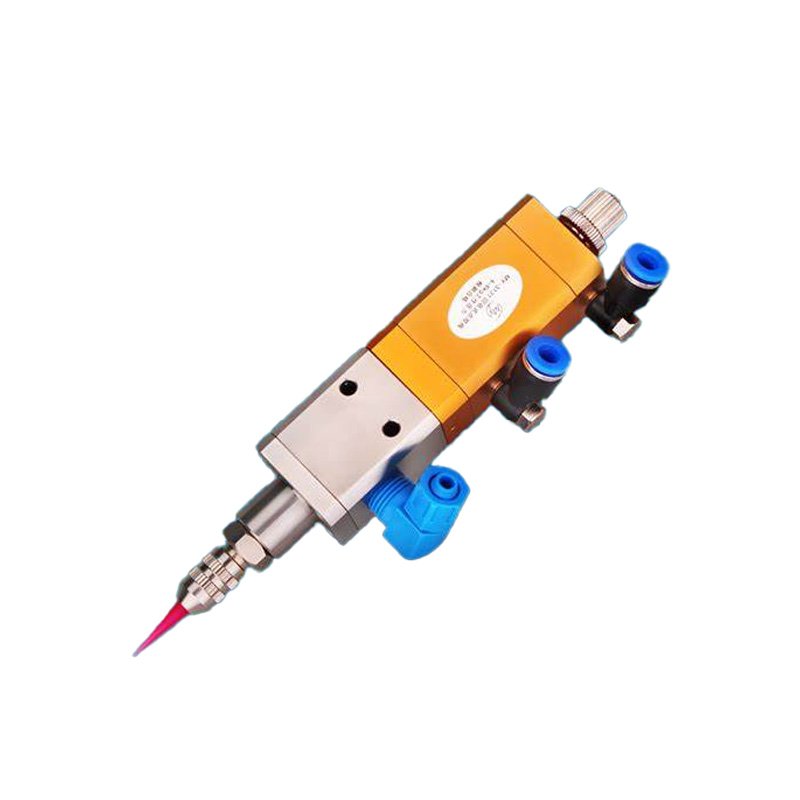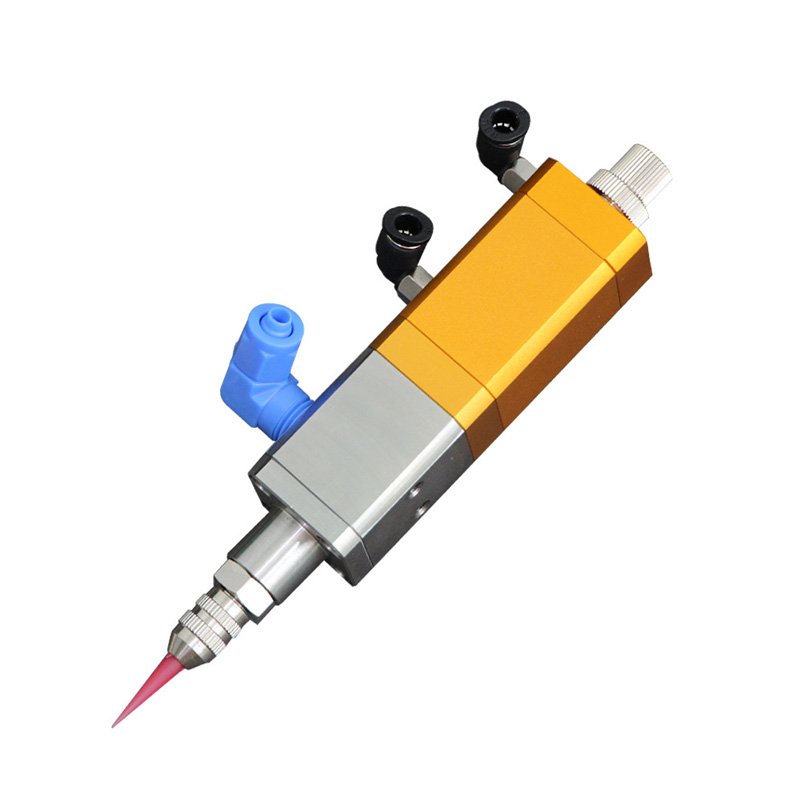Dispensing accessories form the critical interface between fluid delivery systems and substrate surfaces in modern manufacturing processes. These components enable precise, repeatable deposition of adhesives, sealants, lubricants, and other functional fluids across industries ranging from electronics assembly to automotive manufacturing. This technical overview examines the key product categories, performance characteristics, and application considerations based on current industry standards and operational data. Core Product Categories
Core Product Categories
1. Nozzle Assemblies
- Standard tapered nozzles: 0.25mm to 2.5mm orifice diameters (ISO 9001 certified)
- Anti-drip designs: Reduce fluid stringing with <0.5μL residual volume
- High-temperature variants: Withstand 300°C continuous operation (ceramic construction)
2. Fluid Reservoirs
- Pressurized cartridges: 10mL to 1L capacity (316L stainless steel)
- Liner-based systems: Compatible with 5-gallon pails (FDA-compliant materials)
- Disposable syringes: 3mL to 50mL volumes (medical-grade polypropylene)
3. Valve Systems
- Solenoid valves: 5ms response time (24VDC operation)
- Pneumatic valves: 0-100psi operating range (ISO 5599/1 interface)
- Needle valves: 0.1μL/min to 50mL/min flow control
4. Hose & Tubing
- PTFE lined: 1/8″ to 1/4″ ID (chemical resistant)
- Static-dissipative: 10^6-10^9 ohm-cm resistivity
- High-pressure: 500psi burst rating (1/4″ OD polyurethane)
Performance Specifications
| Parameter | Standard Range | Tolerance |
|---|---|---|
| Flow Rate | 0.01-500mL/min | ±2% |
| Droplet Size | 0.1-5mm | ±5% |
| Repeatability | ±0.5% CV | ISO 9001 |
| Operating Temp | -20°C to 120°C | NIST traceable |
| Viscosity Range | 50-500,000cP | ASTM D2196 |
Industry Applications
Electronics Manufacturing
- Underfill dispensing: 0.3mm dot placement accuracy
- Conformal coating: 25μm film thickness control
- Thermal paste application: ±5% volume variation
Automotive Assembly
- Windshield bonding: 6-12mm bead consistency
- Gasket formation: 0.5-3mm width tolerance
- **Thread locking: 0.1mL ±0.005mL dose accuracy
Medical Device Production
- Bioadhesive deposition: Class 100 cleanroom compatible
- Implant coating: USP Class VI material options
- Sensor potting: 0.01μL resolution
Selection Criteria
- Fluid Compatibility
- Verify chemical resistance using ASTM D543 testing data
- Consider gas permeability for sensitive formulations
- Process Requirements
- Minimum/maximum flow rates
- Curing time constraints
- Environmental exposure factors
- Precision Needs
- Positioning accuracy (typically ±0.1mm)
- Volume repeatability (CV <1%)
- Dot/bead profile specifications
- Regulatory Compliance
- FDA 21 CFR 177
- RoHS/REACH certification
- ISO 10993 (biocompatibility)
Installation Best Practices
- System Setup
- Degas fluids prior to installation (40-50°C for 30min)
- Prime all fluid pathways completely
- Verify no air pockets remain in system
- Calibration Procedure
- Perform gravimetric verification (ASTM E898)
- Document baseline performance metrics
- Establish preventive maintenance schedule
- Process Validation
- Conduct GR&R study (10 consecutive runs)
- Measure 30-piece capability (CpK >1.33)
- Document all parameters (ISO 13485)
Maintenance Protocol
Daily:
- Inspect tips for wear/damage (20x magnification)
- Verify purge valve operation
- Check fluid reservoir levels
Weekly:
- Replace filters (10μm or finer)
- Clean exterior surfaces (IPA wipe)
- Lubricate moving parts (per OEM)
Monthly:
- Perform full system calibration
- Replace wear components (seals, O-rings)
- Verify electrical connections (torque specs)
Troubleshooting Guide
| Symptom | Likely Cause | Corrective Action |
|---|---|---|
| Droplet tailing | Wrong tip geometry | Switch to anti-drip design |
| Flow fluctuation | Air in system | Re-prime and degas |
| Pressure spikes | Clogged filter | Replace 10μm filter |
| Seal leakage | Improper assembly | Reinstall with correct torque |







